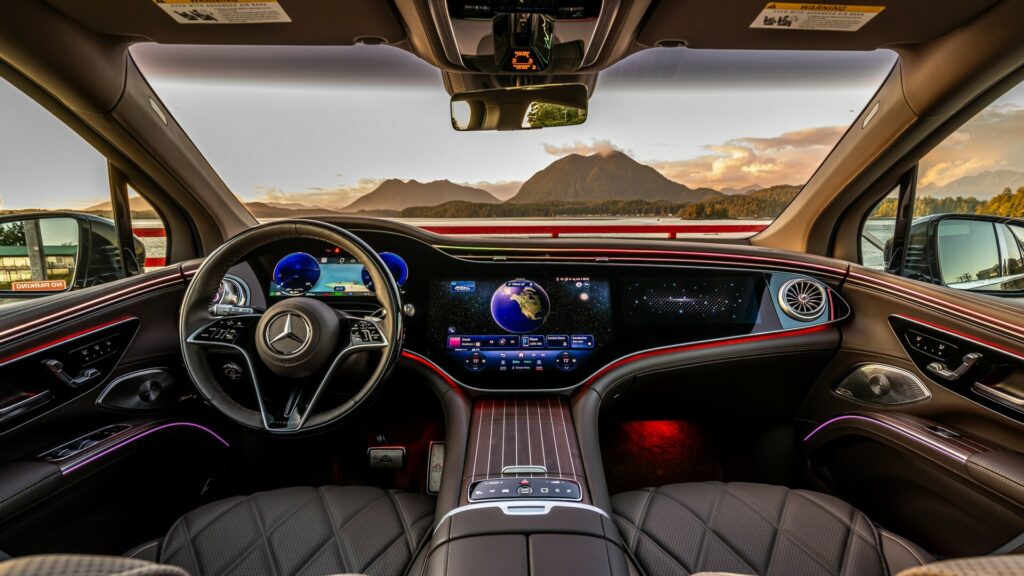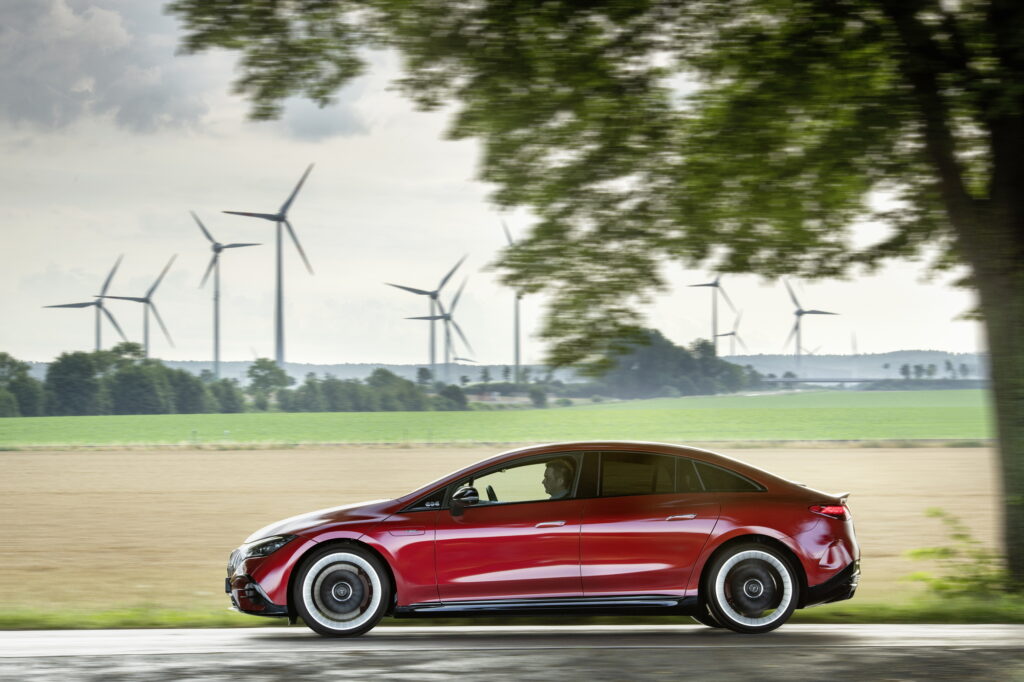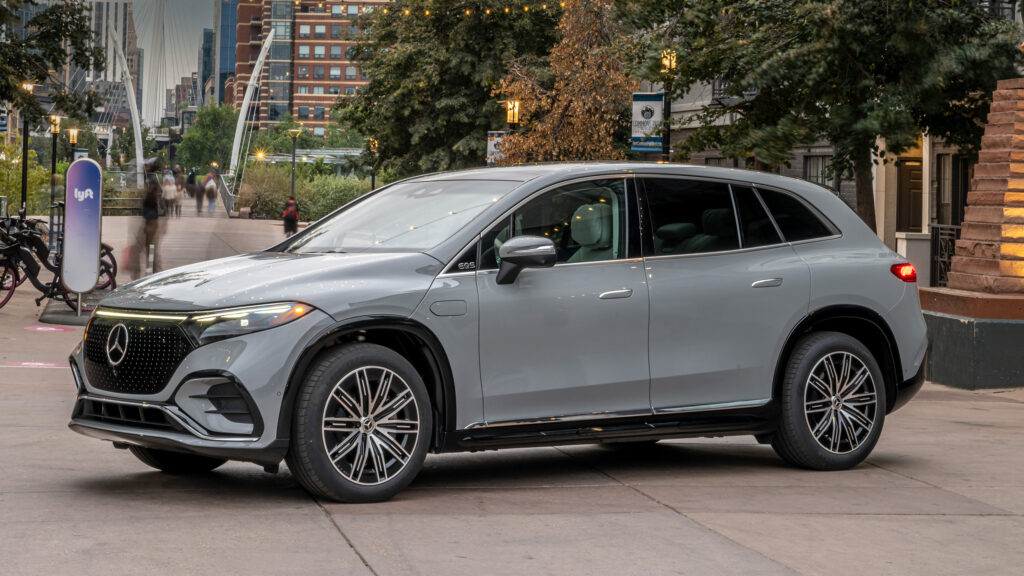- The memory capacity of the battery management system can be overloaded.
- The fault can be rectified with an update to the battery management system.
- 14,912 vehicles need to be repaired in the U.S.
A safety issue with the battery management system software that could trigger a high-voltage system shutdown has prompted Mercedes-Benz to recall no less than 16 model variants of the EQE and EQS electric vehicles in the United States.
The problem began in October 2023 when Mercedes-Benz investigated a report from a dealership in Denmark regarding a high-voltage battery warning message displayed on a new vehicle’s instrument panel before delivery. A similar report followed in November 2023 from the U.S., alleging reduced drive power alongside a warning message.
Read: 677 HP Mercedes-AMG EQE Electric SUV Starts From $110,000
Mercedes’ initial investigation focused on a potential fault within the high-voltage battery’s management system. However, further analysis revealed that excessive diagnostic requests from other control units in the car could overload the battery management system’s memory. This overload triggered a system reset, which is a normal function according to design specifications.
Further investigation between December 2023 and April 2024 aimed to identify the cause of these excessive diagnostic requests. While no initial software defects were found in the control units themselves, testing confirmed that a diagnostic data overflow could lead to reduced power output or, in rare instances, a complete loss of propulsion.

By April 2024, Mercedes narrowed down the cause to specific control units installed in vehicles produced after January 2023. This finding prompted a re-examination of known field cases, all of which involved vehicles from this time frame. Ultimately, in May 2024, after reviewing production records, Mercedes determined a potential safety risk and initiated the recall.
Unfortunately, drivers won’t receive any warning before this unexpected loss of power occurs due to the nature of the software glitch.
The recall encompasses a total of 14,912 vehicles in the U.S., including various versions of the EQE and EQS sedans and SUVs (see below for the complete list). Mercedes noted that the defect affects 100% of these vehicles.
- 2024 EQE 350 4Matic – manufactured between February 1, 2023, and May 11, 2024.
- 2023-2025 EQS SUV 350 4Matic – manufactured between February 1, 2023, and May 11, 2024.
- 2024 EQE 350+ – manufactured between February 1, 2023, and May 11, 2024.
- 2023-2025 EQE SUV 350+ – manufactured between February 1, 2023, and May 11, 2024.
- 2024 EQE 500 4Matic – manufactured between February 1, 2023, and May 11, 2024.
- 2023-2025 EQE SUV 500 4Matic – manufactured between February 1, 2023, and May 11, 2024.
- 2024 EQE 450 4Matic – manufactured between February 1, 2023, and May 11, 2024.
- 2023-2025 EQE SUV 450 4Matic – manufactured between February 1, 2023, and May 11, 2024.
- 2024 EQS 450+ – manufactured between February 1, 2023, and May 11, 2024.
- 2023-2025 EQS SUV 450+ – manufactured between February 1, 2023, and May 11, 2024.
- 2024 EQS 580 4Matic – manufactured between February 1, 2023, and May 11, 2024.
- 2023-2025 EQS SUV 580 4Matic – manufactured between February 1, 2023, and May 11, 2024.
- 2024-2025 Mercedes-Maybach EQS SUV 680 4Matic – manufactured between February 1, 2023, and May 11, 2024.
- 2024 Mercedes-AMG EQE 53 4Matic – manufactured between February 1, 2023, and May 11, 2024.
- 2024-2025 Mercedes-AMG EQE SUV 53 4Matic – manufactured between February 1, 2023, and May 11, 2024.
- 2024 – Mercedes-AMG EQS 53 4Matic – manufactured between February 1, 2023, and May 11, 2024.
Mercedes-Benz will begin notifying owners by mail before July 23, 2024. To address the issue, dealerships will update the battery management system software free of charge.




